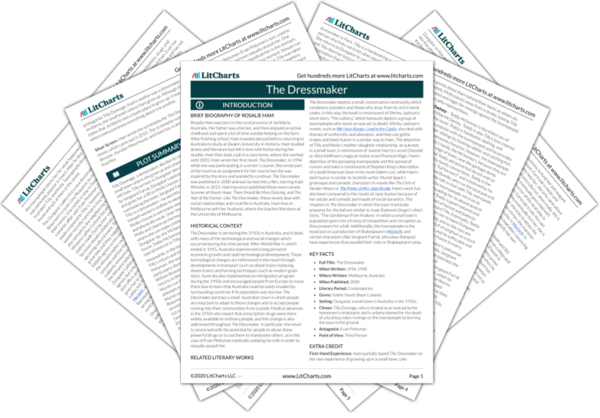It was considered immoral for women to have sex outside of marriage in conservative societies, like Dungatar, in the 1950s. This suggests that many of the Dungatar residents are hypocrites, as they engage in sexual encounters that they judge others for. For example, Molly is treated as an outcast in Dungatar because she had a child when she was not married, yet characters like Gertrude and William also indulge their sexuality out of wedlock. On another note, William’s encounter with Gertrude seems to temporarily transform him and give him confidence to stand up to Elsbeth.


